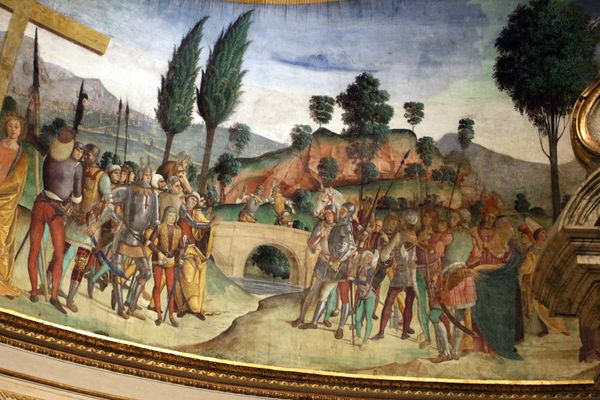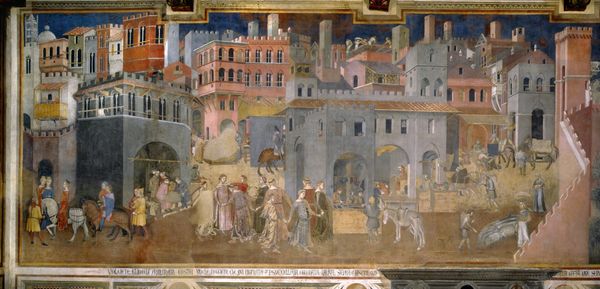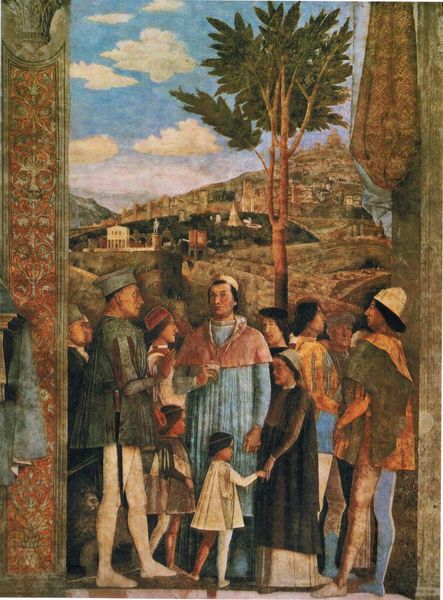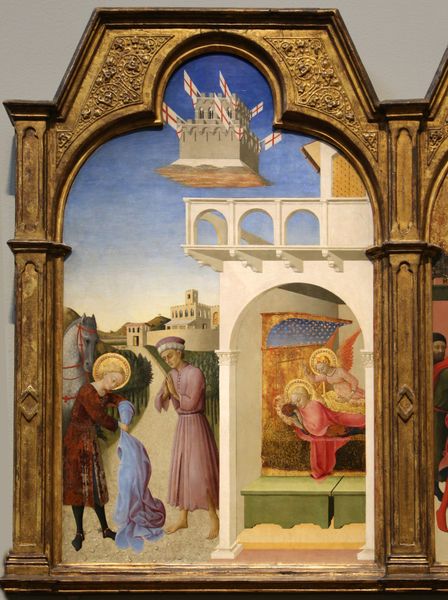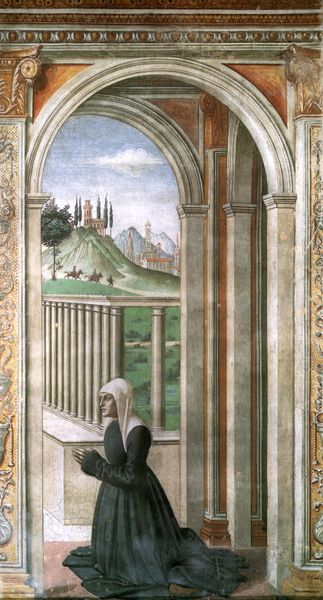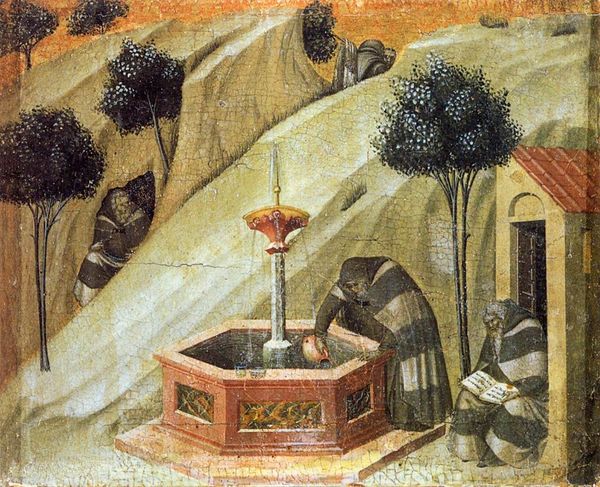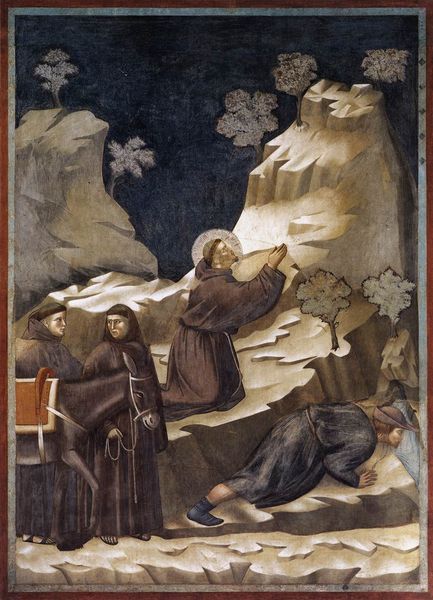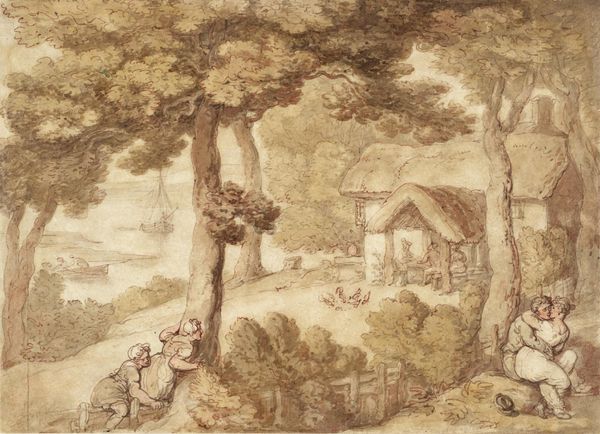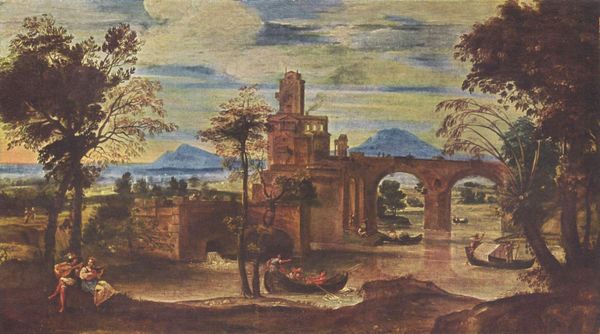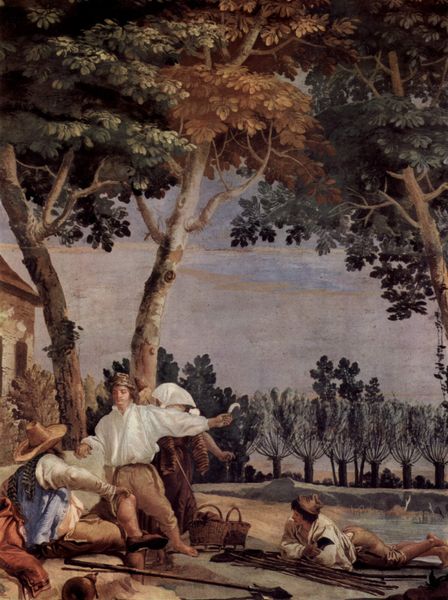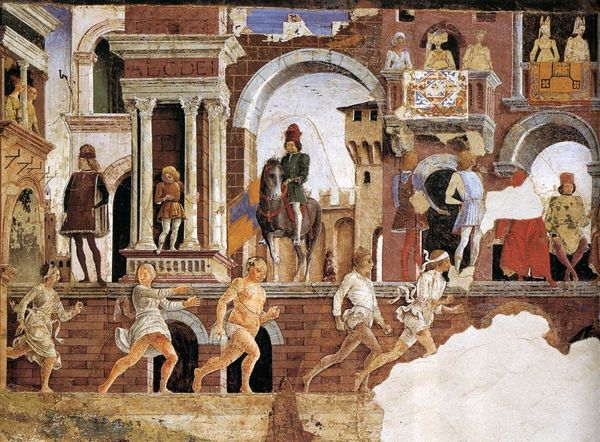
Allegory of May – Triumph of Appolo. Frescos in Palazzo Schifanoia (detail) 1470
0:00
0:00
fresco
#
narrative-art
#
landscape
#
fresco
#
oil painting
#
genre-painting
#
history-painting
#
italian-renaissance
Copyright: Public domain
Curator: Ah, this detail comes from Francesco del Cossa's fresco cycle, painted around 1470 in the Palazzo Schifanoia in Ferrara, Italy. It's titled "Allegory of May – Triumph of Apollo." Quite a mouthful, I know! Editor: It does feel almost like peering into a hazy dream. The colors are so soft, almost faded, and there's a gentle chaos of figures scattered across the landscape. Very pastoral and, dare I say, optimistic in its feel? Curator: Indeed! The fresco originally decorated the walls of the Hall of Months, each month celebrating a different god or virtue. This one focuses on May, and Apollo. Note how daily life is woven into the more symbolic, celebratory elements. It was all carefully curated by the Este court for didactic effect. Editor: The layering is quite something. You've got people riding, collecting wood, walking along a bridge, set against a soft, undulating landscape... It feels very dynamic. Curator: And it’s about how visual art reinforced their societal place. In the larger context, you have the zodiac signs paired with depictions of labour, and alongside are images of the ruling Duke Borso d'Este engaging in courtly pastimes. He wanted you to see this, a society flourishing under his enlightened rule. Editor: A Renaissance influencer, if you will. But does it fully succeed? I sense a slight awkwardness, especially between the landscape and figures. Is that intentional? Curator: Partly stylistic, reflecting the transition from earlier pictorial conventions. It might reflect the challenge of integrating everyday life with humanist ideals and princely authority. Fresco painting demands working quickly, course, on wet plaster – some subtle discrepancies are almost inevitable. Editor: Despite those slight imperfections, it breathes. There's something timeless about ordinary folk engaging in everyday activities. They remind me of snapshots, capturing fleeting, authentic moments. A visual record that’s both idealized and refreshingly genuine. Curator: A sentiment, I think, Duke Borso himself may have sought, for different purposes. Regardless, its lasting power lies in how effectively it merges those threads. It encapsulates a period hungry to represent both what is, and what should be. Editor: A testament to ambition, beautifully fractured through time, really. I find I keep returning to the warmth, it's quite inviting. Curator: It really is, a moment of the Italian Renaissance.
Comments
No comments
Be the first to comment and join the conversation on the ultimate creative platform.
